Chiquita Davis is still haunted by the phone call she received Jan. 8, telling her the young man she had raised for nearly two decades was dead.

Now, every time her cell phone rings, she fears it’s another call like that. But the one call she wants to get never seems to come – the one from the Chicago Police Department updating her on the investigation of 24-year-old Darvelle Brown’s death.
Nearly five months have passed since Brown was shot to death, but his family — including Brown’s 18 step, half and biological siblings — don’t know if any progress has been made in finding the killer; no one has heard from the police, Davis says.
At first, the family got some information about what happened that cold January morning in the 4000 block of West Wilcox Street. Brown was shot and left to die in the hallway of an apartment building in West Garfield Park.
After one of Brown’s friend’s called Davis to tell her about the shooting, she rushed to the hospital, where staff gave her the police incident report, which had some details.
Two days later, Davis says she contacted police, after neighbors in the area where Brown was shot told her he may have been killed in a robbery.
During an hour-and-a-half phone conversation, Davis says the officer told her who would handle the case, explained what happened that night and that police didn’t know if the shooting was related to a robbery. At this point, she had no complaints; she thought a full investigation would be the next step.
But that was the last informative conversation Davis says she’s had with police.
Police defend the way they’ve communicated with the family, saying detectives handle many cases at once and may not have time to stay in contact with everyone as much as they like.
Davis says the unanswered questions about Brown’s death have left her so upset she finds herself questioning her once-strong faith in God. Her faith has been tested before – with the 2001 murder of her older brother.
And it’s being tested again.
Davis knew Brown since he was 5 — after his biological mother died. Davis dated his father, Sheldon Brown, and continued raising him even after the couple split up.
Now, Brown’s family and friends are in disbelief that he’s gone and upset they know so little.
A police spokesman in the department’s News Affairs office said he doesn’t know anything about the case, but in general, victims’ families are “always griping” about the police if their case has not been solved.
“You’ll never hear a victim’s family say, ‘Oh, the police did such a great job,’” the officer said, declining to give his name because he did not know specifics about Brown’s case.
Davis says she tried calling the detective handling the case several times in the days following Brown’s death. Most times, the detective, based at the Area 3 police station, 2452 W. Belmont St., did not pick up.
She caught the detective once, after midnight; he talked to her briefly, telling her there were no updates on the case. She called back later in January and left a voicemail but says she received no call back.
Since then, Davis hasn’t bothered calling.
“Chicago police haven’t been any help,” she says. “That’s it. Nothing at all.
” The police department requires its detectives to contact homicide victims’ families at least one month, six months and a year after the murder to keep them informed about the case, police spokesman Adam Collins said in an e-mail.
He declined to answer further questions, including what families can do if the department’s communication policy isn’t followed. The Bureau of Detectives has not responded to multiple calls from ChicagoTalks.
Both Davis and Sheldon Brown say the police have not reached out since Brown was killed.
At one point, the family’s hopes were raised when they thought police might have a suspect. Davis says a family member was visiting the Area 3 police station filing an unrelated complaint when she walked past a room that had a picture of Brown pinned on a board; next to it was a photo of someone labeled “suspect.”
Detectives don’t notify families each time they have found someone unless there is serious reason to believe he or she committed the crime, said the news bureau officer.
“That just gives the family false hope,” said the officer.
Davis suspects that police are not fully investigating Brown’s case because he was African-American and had a criminal record.
But department spokesman Collins said every homicide case is treated the same and “receives the same exact resources.” Some cases may receive more media attention, he said via e-mail, but that’s beyond the police department’s control.
Darvelle Brown served a little more than a year in prison for a drug-related arrest from February 2011 to May 2012, according to court records.
After Brown was released on parole last spring, he earned a food service sanitation manager certificate from the Illinois Department of Public Health and planned to join Davis in her catering business.
Brown cooked for his grandmother in his free time, says Davis.
“He loved to cook for my mom, his grandma,” says Davis. “My mom has diabetes, and Darvelle would check her sugar and make her breakfast. She always said, ‘Darvelle makes the best breakfast.’”
He was thinking about opening his own business, perhaps a restaurant, says Brown’s fiancé and college student Sharlton Jelks.
Jelks said they got engaged about a year ago and were working on setting a wedding date when she had a miscarriage then lost Brown a little more than a week later.
Jelks and Davis both struggle with their grief. Family members have attended counseling sessions together.
But the counseling has not changed Davis’ outlook on the case. She says lack of contact from police leaves her discouraged, and she’s upset the killer could still be free.
Little or no interaction with investigators can take a mental toll on a family who’s already distraught, says Robert Zucker, a grief counselor and author of The Journey Through Grief and Loss.
Relatives and friends often struggle with symptoms similar to post-traumatic stress disorder, which is usually associated with war veterans but certainly not limited to them, Zucker says.
Family members may have constant flashbacks of the dead body, mixed with some of the more obvious emotions of numbness, shock and disbelief.
And when these feelings are mixed with lack of communication from police, he says families can feel ignored.
“It’s a disenfranchised grief,” Zucker says. “It’s like they feel the authorities are acting in a way that suggests that their loss is not significant.”
And the more ignored a family feels, the healing process can falter or stop.
Police could hire social workers to reach out to families dealing with unsolved cases, Zucker suggests.
The department’s crime victim’s assistance program will reach out to families, asking them if they need help funding funeral services or want to be put in touch with support groups, says Ron Holt, the program’s citywide coordinator. But it’s unclear what other help is provided beyond that.
The office of Cook County State’s Attorney Anita Alvarez has a victim’s assistance program, but families don’t get help unless charges have been filed in a case – leaving the majority of homicide victim family members with no where to turn.
Fewer than 30 percent of the city’s homicides were solved in 2011, according to the most recent murder analysis report made public by the Chicago Police Department.
Sometimes, persistence is key, said Pat Nichols, a co-leader for the Chicago Chapter of Parents of Murdered Children.
Nichols said she always encourages people in her group to keep calling police because if officers don’t see the case is a priority to the family, they may put it off to the side.
“We tell them to keep calling. That’s your child. That’s the only way your case will get solved.”
This story is part of a week-long series about homicides in Chicago. ChicagoTalks, a news outlet operated by Columbia College’s Journalism Department, undertook a semester-long investigation of the topic funded with a grant from The Chicago Community Trust. ChicagoTalks is publishing additional stories throughout the week. If you have questions or comments, please e-mail project editor Suzanne McBride at smcbride@colum.edu.
Read more from this series:
- Argument over basketball game takes parents’ only child
- Family seeks answers after 8th grader’s murder
- Family, friends of murdered Uptown businesswoman say they have been left in the dark
- Killer on the line
- Lonely anniversary
- For some, the grieving never ends
- Families say silence the norm after Chicago homicides
- Homicide victim’s mother sees progress in Englewood
- Families question support after loved ones’ killings
- Unsolved homicide not forgotten
- Final call to a friend




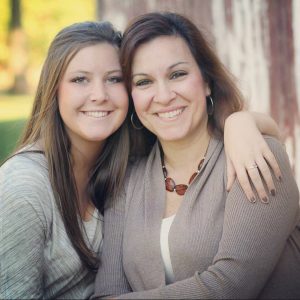
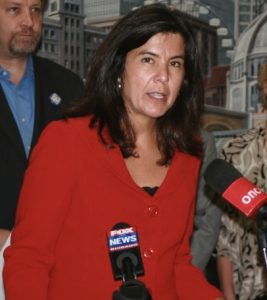







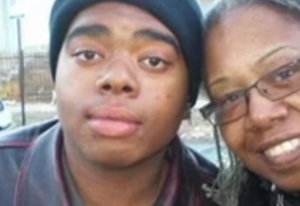
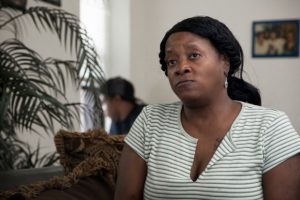
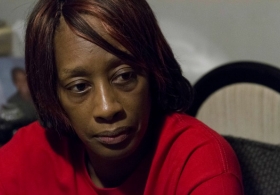





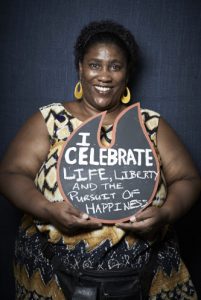

Be First to Comment